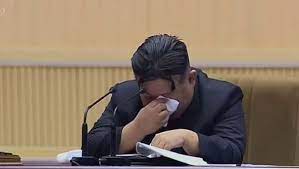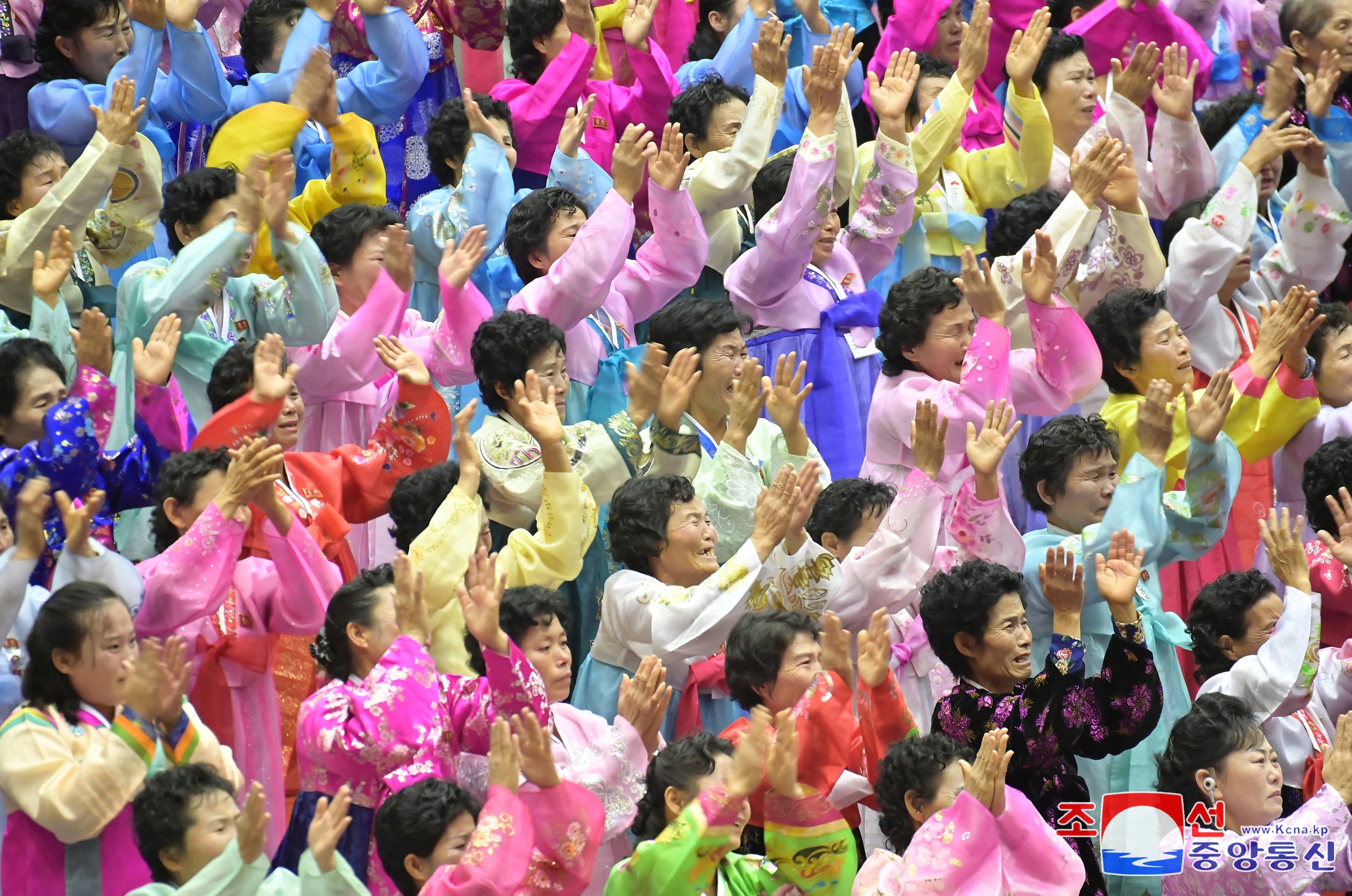As North Korean dictator, Kim Jong Un shed tears, thousands of women also wept over the country’s declining birth rate.
Jong Un called on the women to have more children, saying that it was their duty to halt the country’s declining birth rate.
In his emotion-soaked manner, Kim Jong Un was seen dabbing his eyes with a handkerchief while addressing thousands of women at a National Mothers’ Meeting in Pyongyang on Sunday, December 3.
Also read
- Bible possession: 2-year-old, family serve life imprisonment in North Korea
- As North Korea launches ICMB, US and others condemn
- Trump Mocks North Korea Leader’s Nuclear Button
The women who attended the event dressed in traditional multi-coloured garments also wept along with their leader.
‘‘Preventing a decline in birth rates and good childcare are all of our housekeeping duties we need to handle while working with mothers,’ Kim said at the event, while also urging them to instil the values of his communist party in their children.
The event- the first National Mothers’ Meeting in 11 years – was put on amid a fall in the isolationist state’s birth rate, which has evidently prompted concern among the DPRK’s (Democratic People’s Republic of Korea) top officials.
Addressing the audience as ‘‘Dear Mothers’, Kim told them ‘we are confronted with a host of social tasks that our mothers should join to tackle.’’
‘‘These tasks,’ he said, ‘include bringing up their children so that they will steadfastly carry forward our revolution, eliminating the recently-increasing non-socialist practices, promoting family harmony and social unity, establishing a sound way of cultural and moral life, making the communist virtues and traits of helping and leading one another forward prevail over our society, stopping the declining birth rate, and taking good care of children and educating them effectively.
‘‘These belong to our common family affairs, which we need to deal with by joining hands with our mothers,’’ he added.
He said ‘‘in view of our mothers’ position and role in their families and society,’’ his government viewed the meeting of mothers as ‘‘no less important than a party congress or a plenary meeting of the Party Central Committee.’’
According to South Korea’s government statistics agency, North Korea’s total fertility rate, or the average number of babies expected to be born to a woman over her lifetime, was at 1.79 in 2022, down from 1.88 in 2014.
The decline is still slower than its wealthier rival South Korea, whose fertility rate last year was 0.78, down from 1.20 in 2014.
South Korea’s fertility rate, the lowest in the developed world, is believed to be due to a potent cocktail of reasons discouraging people from having babies, including a decaying job market, a brutally competitive school environment for children, traditionally weak child care assistance and a male-centered corporate culture where many women find it impossible to combine careers and family.
While North Korea is one of the poorest nations in the world, the change in its demographic structure is similar to that of rich countries, some observers say.
“Many families in North Korea also don’t intend to have more than one child these days as they know they need lots of money to raise their kids, send them to school and help them get jobs,” said Ahn Kyung-su, head of DPRKHEALTH.ORG, a website focusing on health issues in North Korea.


